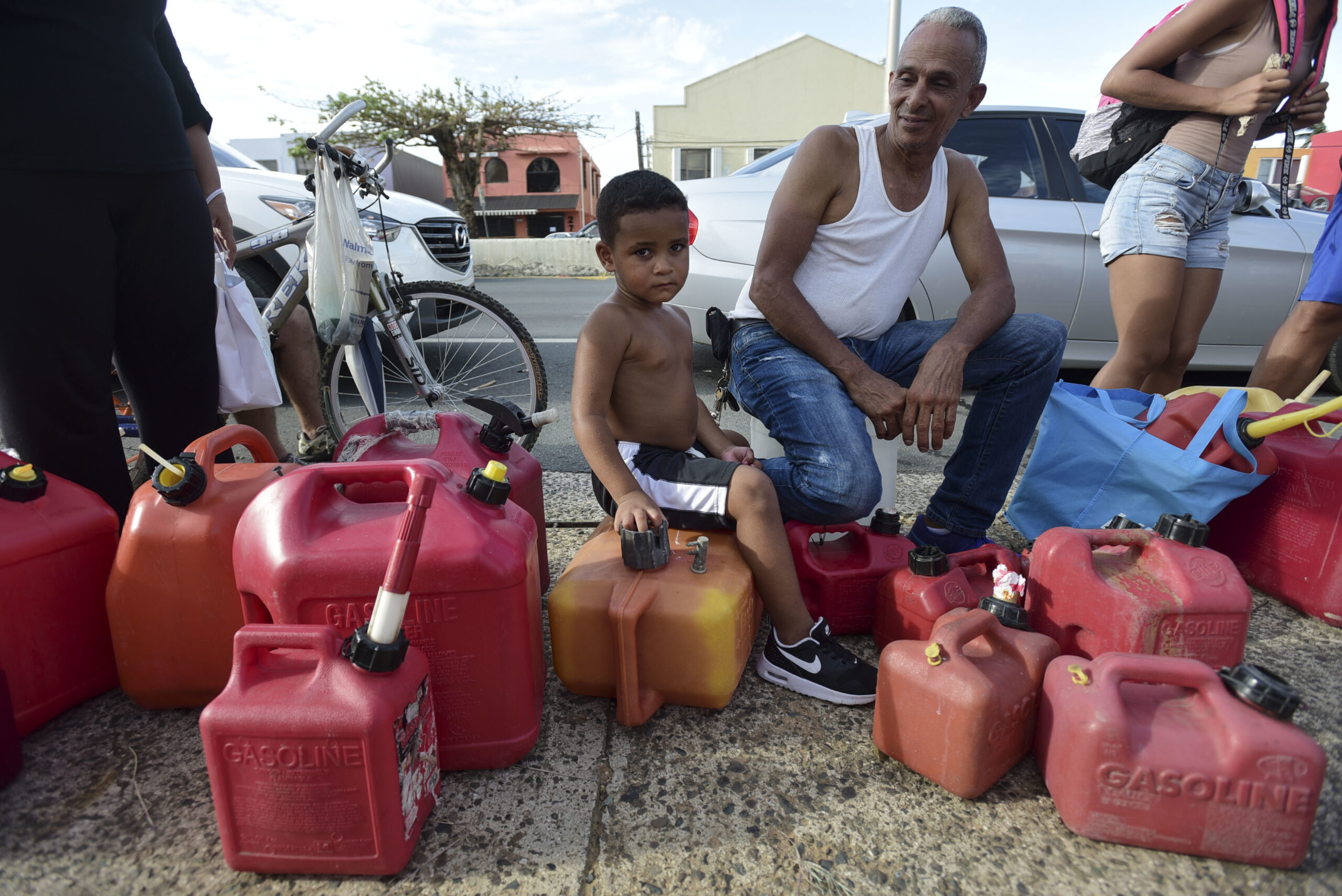Seven days. That’s how long it’s been since Hurricane Maria made landfall in Puerto Rico, yet many communities are still stranded and waiting to receive any aid from the outside world.
Fuel has become as valuable as gold in many areas of the island, home to as many U.S. citizens as Alaska, Wyoming, the Dakotas and Vermont combined. Residents have been waiting hours in line to get gasoline for their generators after Maria knocked out most of the island’s power grid and crippled the region’s transportation network.
“I’m going to be camping tonight,” local resident Marangelly Garcia told Reuters after waiting in line for hours on Monday in a failed attempt to buy diesel to power her home and cook meals.
As residents scramble to gain access to fuel trickling into their communities, some have questioned why the Trump administration has decided not to temporarily waive a rule that prohibits foreign vessels from domestic trade routes. The federal government implemented the waiver in the wake of hurricanes Irma and Harvey that ravaged Texas and Florida, which raises the question: Why the double standard?
David Lapan, spokesman for the Department of Homeland Security, told the Associated Press his agency won’t waive the rule because there are plenty of U.S. flagged vessels to handle the operations. Lapan says most of the humanitarian shipments will be carried by barges. Barges however, move significantly slower than cargo ships.
Rep. Nydia Velázquez, a New York Democrat, and seven other representatives had asked for the shipping waiver in order to speed up deliveries of fuel, food, water, medicine and other necessities to the storm-ravaged island.
Lives are on the line in Puerto Rico. @POTUS’ action is too little, too late. We need a targeted federal response! https://t.co/QzkEyRFyl5
— Rep. Nydia Velazquez (@NydiaVelazquez) September 26, 2017
Under the Jones Act, a 97-year-old law, only U.S. flagged ships are allowed to transport goods from one U.S. port to another, but occasionally, in the wake of natural disasters, the federal government waives the requirement in order to speed up the transport of supplies. Doing so opens access to lower cost, readily available foreign-flagged ships in the region.
But according to Gregory Moore, Customs and Border Protection spokesman, the main problem is access to land, not ships.
“The limitation is going to be port capacity to offload and transit, not vessel availability,” Moore said in a statement to Reuters. Customs and Border Protection is a division of the Department of Homeland Security.
The Jones Act has long been a contentious issue with Puerto Rico, a territory of the United States that must abide by federal laws but whose people lack equal representation on Capitol Hill. The law, they argue, makes goods more expensive to the island, which has many impoverished residents. Fuel is a big issue in this regard, since the island is completely dependent on imports. Like other U.S. commonwealths, Puerto Ricans on the island are represented by one non-voting delegate in the House of Representatives, a position currently held by Jenniffer González-Colón, a Republican.
The American citizens of #PuertoRico are glad to count on a true friend in @SpeakerRyan
Thank you for your leadership in this recovery! 🇵🇷 https://t.co/R6KTIPnREi
— Jenniffer González (@RepJenniffer) September 26, 2017
Meanwhile, conditions on the island have been described by San Juan Mayor Carmen Yulín Cruz as “horrific.”
“We’re doing our damnedest to get to them,” she told the Los Angeles Times, referring to the many residents of the island’s capital that had yet to be reached by rescue workers or relatives. “Especially the elderly that are left locked up in their buildings with no food, no electricity, no medication, no medical attention,” she added. “We’re canvassing them one by one.”
At least 16 people were killed by the storm, but the death toll is expected to rise as responders expand their operations and while people suffer from tropical heat and scarcities of food, water and medical care.
The delayed federal response, as well as lack of preparation ahead of the storm, has led some to label the disaster President Donald Trump’s Katrina, a reference to the 2005 hurricane that left resident of New Orleans swamped for days fending for themselves. The racial undertones here are hard to ignore – New Orleans is a predominately African-American city while Puerto Rico is an island populated by Spanish-speaking Hispanics.
In the meantime, Trump has said he’s doing an “amazing job.”

